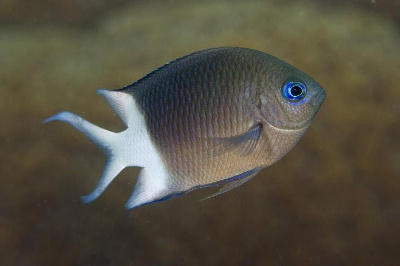Using AI to control energy for indoor agriculture
30 September 2024
Published online 14 August 2016
Fish change their circadian rhythm to tolerate the high CO2 levels in the ocean due to climate change.

© Jennifer Donelson
In an unprecedented study on non-model organisms in captivity, scientists from Saudi Arabia, Australia and Norway were able to create large sequence datasets on how reef fish and their offspring react to the phenomenon of decreasing pH levels, called ocean acidification, brought on by climate change1.
Acidification happens due the uptake of atmospheric CO2.
“The amount of sequencing data we generated is unparalleled for a non-model organism,” says Timothy Ravasi, the senior author of the paper.
Scientists discovered that the offspring of some reef fish can tolerate acidification by adjusting their circadian rhythm to night time function throughout the day. The night is when the ocean around coral reefs normally has a higher level of CO2 causing lower pH levels.
“At higher levels of CO2 fish usually do not behave in a normal manner and cannot react to alarm cues from conspecifics indicating danger (e.g. predators), which is crucial for their survival,” says Ravasi.
Through this study the scientists quantified fish behaviour by observing the reaction of tolerant adult fish; fish that are able to cope with higher levels of CO2. And they investigated the molecular reaction of their offspring.
Future studies are investigating genome sequencing in fish with different tolerance to high CO2 levels. This is to “identify possible genetic and epigenetic variations that could explain the observed tolerance,” says Ravasi.
doi:10.1038/nmiddleeast.2016.123
Stay connected: